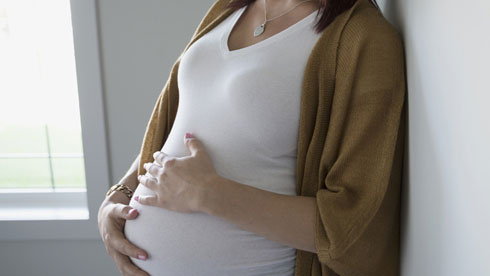 There are a lot of changes which take place in a woman’s body including the vaginal area during pregnancy. Vaginal area becomes sensitive during this period and as such good vaginal hygiene must be maintained. Read on to learn more about the importance of vaginal hygiene during pregnancy.
There are a lot of changes which take place in a woman’s body including the vaginal area during pregnancy. Vaginal area becomes sensitive during this period and as such good vaginal hygiene must be maintained. Read on to learn more about the importance of vaginal hygiene during pregnancy.Pregnancy brings so many changes inside and outside your body – the experience is inexplicable. Personal hygiene becomes a serious matter during these days; especially your intimate area requires even more attention than usual. As your vagina undergoes changes during this period, you should be aware of various risks you may encounter and what preventive measures you should adopt to avoid them.
Vaginal Changes during Pregnancy
As your estrogen levels increase during pregnancy, your vaginal acidity level decreases, which is why the pH changes from 3.5 to nearly 4.2. This change is also associated with stress levels that rise due to the emotional and physical changes commonly encountered during
pregnancy.
The normal cell renewal process of the vaginal mucous membrane changes causing an imbalance in vaginal flora, which is unable to maintain the acidity level required to prevent the rapid growth of bacteria and fungi. Thus risk of infection increases.
Vaginal discharge also increases causing inflammation and itching. Fermentation, stagnation, and proliferation of bacteria, which causes constipation during pregnancy, can also contaminate the urinary tract and the vaginal area.
Vaginal Risks during Pregnancy
As the vaginal acidity decreases during pregnancy, growth of bacteria responsible for inflammation and yeast infections increases in the alkaline environment. The most common bacterial
infections include Trichomonas vaginalis, Candida vulvovaginitis, and bacterial vaginosis. These are accompanied by itchy skin, red sore skin, and other typical symptoms of inflammation. Bacterial vaginosis is very risky as it can lead to
preterm delivery, causing the baby to born underweight. It is essential to treat these bacterial infections during pregnancy, and the best way is to keep your vaginal environment clean.
Washing Your Vagina
Wash your vagina gently with plain water every day. The natural vaginal discharge cleanses the vagina itself inside your body. Keeping the perineal area between your vagina and anus clean is important too, so wash it twice a day. Avoid perfumed soaps or gels as they may disturb pH levels of vagina and cause irritation. You can use a cleanser recommended by your doctor, which is having an acid pH (3.5-5.5) and antibacterial and soothing properties. Go for the liquid or gel versions over the solid ones. Two washes with intimate cleanser are sufficient.
Avoid Panty Liners, Stick to Underwear
Panty liners may be useful during abundant vaginal discharge, but it can cause an increase in stagnation and temperature of harmful bacteria. Prolonged use of panty liners can cause undesired odors and irritation. Allowing the skin to breathe is very important which is why you should only wear underwear made of cotton or linen (cotton being the best). Change your underwear more than once in a day if necessary. Use gentle detergents for washing them. Make sure they are absolutely dry before you use them to ward off excessive humidity in the vaginal environment.
Maintain a Healthy Diet
Apart from washing and wearing underwear, you must also keep in mind that a healthy diet is equally effective to maintain vaginal hygiene. Healthy diet is not only good for your developing baby, but also it is good for your immune system as well to fight bacteria and other foreign microbes that you are harmful for your body. Choose proteins and sources of
folic acid, phosphorous, and Vitamin D. You should have variety of good food, like eggs, meat, fish, milk, milk-based products, fruits, vegetables, cereals, and pulses and drink a plenty of water.
If you notice any strange discharge, if you find anything unusual about your vagina, if you find constant itchiness, if you feel any burning sensation, or if you feel anything serious about your intimate area, just make a visit to your obstetrician.
How to take care of vaginal area during pregnancy? Is douching safe during pregnancy? How to prevent vaginal infections during pregnancy? Discuss here.


